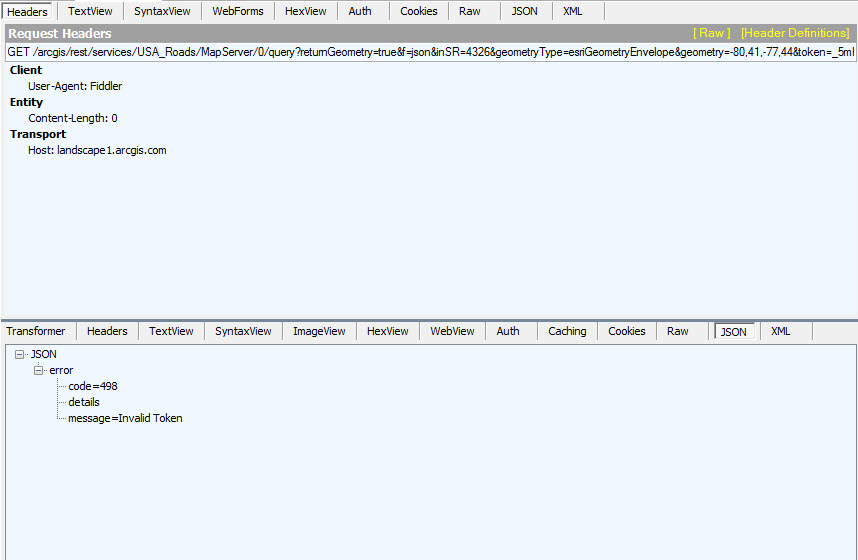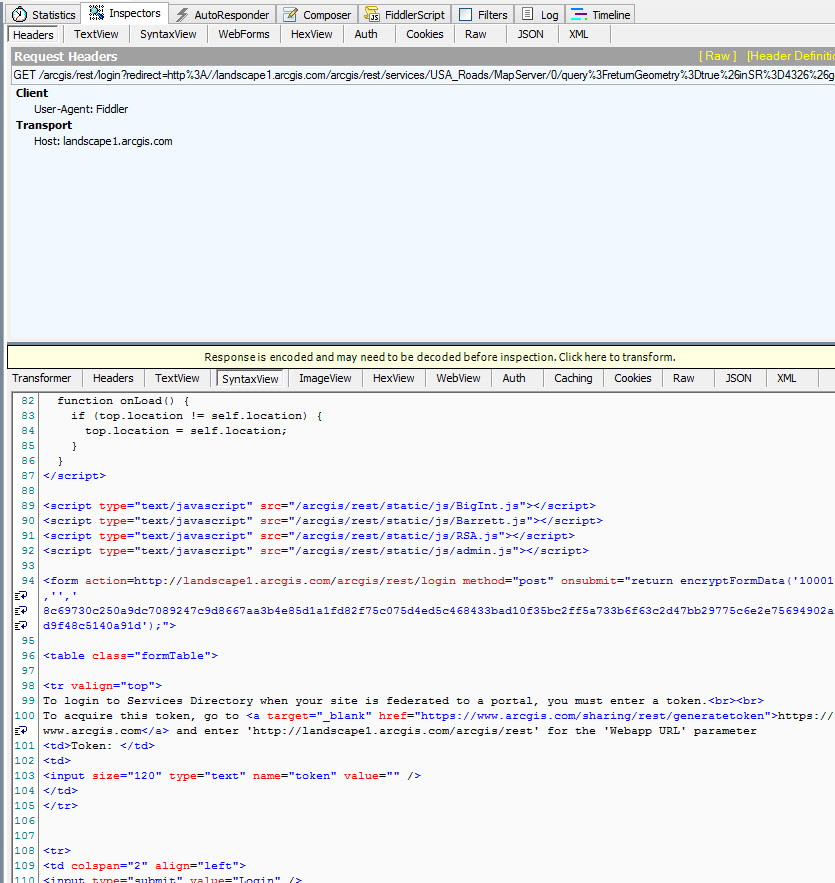- Home
- :
- All Communities
- :
- Products
- :
- Mapping
- :
- Mapping Questions
- :
- Re: Welcome to the Landscape Layers forum
- Subscribe to RSS Feed
- Mark Topic as New
- Mark Topic as Read
- Float this Topic for Current User
- Bookmark
- Subscribe
- Mute
- Printer Friendly Page
Welcome to the Landscape Layers forum
- Mark as New
- Bookmark
- Subscribe
- Mute
- Subscribe to RSS Feed
- Permalink
Welcome to the Landscape Maps and Data forum. This forum is for you to post questions and provide ideas for the ArcGIS for Landscape (beta).
About the Landscape Analysis Layers
These layers are available for use now! Visit the Landscape Layers Group on ArcGIS.com to learn more.
Feedback
Your feedback matters! What layers do you find most useful? How are you using them? Did you use any geoprocessing tools with these services and what was your experience? If you want to let us know, post your feedback here on this forum. Please let us know too, if you have issues or are experiencing problems with any of the layers. We cannot wait to hear from you!
- Mark as New
- Bookmark
- Subscribe
- Mute
- Subscribe to RSS Feed
- Permalink
Thanks Charlie! I spent some time getting the code streamlined (a lot of unused code, and duplicate variables as you noted). It worked a few time!! it is back to the same error and I am at an impasse why. When it was working for you, did you request JSON as the output? THat seems to be an issue. The script fails with the "Cannot load" error still, presumably because of a lack of proper response / error. I do these steps:
1. Run the code Ipasted below). I get the standard error "RuntimeError: RecordSetObject: Cannot open table for Load"
2. In my python output I print the URL we use. Example here. I copy and paste this into a browser
{"error":{"code":498,"message":"Invalid Token","details":[]}} is the result in the browser.
3. if I remove the "&f=json" argument on the URL, I get a different result: I am redirected to the ESRI Web API Rest Login Page (which redirects using a URL-safe version of my URL). It's a little odd because the token argument is in the URL, but I from here I can copy the token string (the same one from above) into my text box and ESRI accepts it.
4. If I repeat step 2 and paste into the same browser instance, the desired JSON result is returned! (Example- {"displayFieldName":"fullname","fieldAliases":{"fullname":"Full Name"},"geometryType":"esriGeometryPolyline","spatialReference":{"wkid":102100,"latestWkid":3857},"fields":[{"name":"fullname","type":"esriFieldTypeString","alias":"Full Name","length":100}],"features":[{"attributes":{"fullname":"New York State Throughway "},"geometry":{"paths":[[[-8734554.8257999998,5309850.4296000004],[-8734553.2673000004,5309851.1904999986],[-8733750.6537999995,5310086.1526999995],[-8732985.3322999999,5310311.2289000005],[-8732888.8182999995,5310339.3828999996],[-8732505.6566000003,5310451.6950000003],[-8731923.9010000005,5310622.7531000003],[-8731833.7322000004,5310648.0164000019],[-8731491.5361000001,5310749.9833000004],[-8731394.4655000009,5310777.3775999993],[-8731240.3992999997,5310823.1871000007],[-8731130.6382999998,5310862.6048000008],[-8731041.6940000001,5310900.0442000031],[-8730938.1668999996,5310948.8981999978],[-8730887.9617999997,5310974.3144999966],[-8730830.9661999997,5311006.5797000006],[-8730806.3646000009,5311020.5816000029],[-8730713.7467999998,5311076.7415999994],[-8730643.0589000005,5311122.7048000023],[-8730529.2904000003,5311207.3263999969],[-8730500.2359999996,5311230.6127000004],[-8730472.4060999993,5311253.1379999965],[-8730182.3074999992,5311481.1340999976],[-8730059.2994999997,5311581.1314999983],[-8729903.8975000009,5311703.1997999996],[-8729871.1695000008,5311728.9226000011],[-8729773.2083999999,5311802.2863000035],[-8729771.9838999994,5311803.1996000037],[-8729645.1909999996,5311904.5702999979],[-8729389.2675000001,5312105.945100002],[-8729340.0643000007,5312143.6938000023],[-8729217.5014999993,5312239.740699999],[-8729133.0099999998,5312310.5208000019],[-8729054.0844999999,5312372.1683000028],[-8728857.0490000006,5312522.5596999973],[-8728842.2434999999,5312533.9760999978],[-8728833.0040000007,5312540.9782000035],[-8728831.000 ..... )
CODE is below. A few thoughts...
* Could there be a specific issue with the service retruning JSON results? Charlie did you request JSON when it worked?
* Do I need to do more to make the request URL safe?
* Does the same page handle token requests from all *.esri.com domains? Should I be requesting the token from a different ESRI REST GenerateToken page if there are more than one?
THANKS!!!!!
# Originally based on script from Charlie Frye - ESRI - 12-8-2015
# Import python modules
import arcpy
import re
import copy
import os, sys
from arcpy import env
# For Http calls
import httplib, urllib, json
#Globals
refURL = 'www.arcgis.com'
# A function to generate a token given username, password and the adminURL.
def getToken(username, password, serverName, serverPort):
# Token URL is typically http://server[:port]/arcgis/admin/generateToken
print "entering getToken"
tokenURL = "/sharing/rest/generateToken"
params = urllib.urlencode({'username': username, 'password': password, 'client': 'referer','referer': refURL, 'expiration':'600','f': 'json'})
headers = {"Content-type": "application/x-www-form-urlencoded", "Accept": "text/plain",'referer': refURL}
# Connect to URL and post parameters
if serverPort == "":
httpConn = httplib.HTTPSConnection(serverName)
else:
httpConn = httplib.HTTPConnection(serverName, serverPort)
print "request" + tokenURL + "/" + str(params) + "/" + str(headers)
httpConn.request("POST", tokenURL, params, headers)
print "request complete"
# Read response
response = httpConn.getresponse()
if (response.status != 200):
httpConn.close()
FailType = 'Failed getting token; check connection and credentials'
print "Error while fetching tokens from admin URL. Please check the URL and try again."
return
else:
data = response.read()
httpConn.close()
print "response:" + data
# Check that data returned is not an error object
if not assertJsonSuccess(data):
return
# Extract the token from it
token = json.loads(data)
print "TOKEN SUCCESS"
return token['token']
# A function that checks that the input JSON object
# is not an error object.
def assertJsonSuccess(data):
obj = json.loads(data)
if 'status' in obj and obj['status'] == "error":
print "Error: JSON object returns an error. " + str(obj)
return False
else:
return True
scratchWkspc = arcpy.env.scratchGDB #Local Processing Environment
arcpy.env.overwriteOutput = True
serverPort = ""
#Get token via function
tokenString = (getToken("XXXX","XXXXX","www.arcgis.com",serverPort)).encode('ascii','ignore')
print "GOT TOKEN STRING"
print tokenString
# Get the input feature service and make a feature set, which is what GP tools can use as input
#i#nputField = "OBJECTID"
#where = '1=1'
fsURL = "http://landscape1.arcgis.com/arcgis/rest/services/USA_Roads/MapServer/0/query?returnGeometry=true&f=..."+tokenString
print fsURL
# ###### Make the 'Feature Class' from the Service
inputSupplyFC = arcpy.FeatureSet()
inputSupplyFC.load(fsURL)
inputSupplyFC.save(r"L:\temp\greg2.shp")
- Mark as New
- Bookmark
- Subscribe
- Mute
- Subscribe to RSS Feed
- Permalink
Hi Greg,
I am able to reproduce what you've described. I recalled that when I was originally writing this script, it was important not to set the referer to an actual URL, and than any string, like "arcgis" would instead work.
That no longer seems to be the case, I'll need to investigate that.
On your questions:
* Could there be a specific issue with the service retruning JSON results? Charlie did you request JSON when it worked? I've always used JSON for this, though I've tried HTML to see what it looks like (not so parse-able), and so it's rather strange that it allowed the sequence you found. The reason it works is that once the token is entered in step 3, the browser has cached it.
* Do I need to do more to make the request URL safe? I'm not sure, as I'm not a web programmer ant not familiar with the concept.
* Does the same page handle token requests from all *.esri.com domains? Should I be requesting the token from a different ESRI REST GenerateToken page if there are more than one? No, each ArcGIS Server can be configured to authenticate, and when so the portal, e.g., www.arcgis.com is entered into the server's configuration.
Charlie
- Mark as New
- Bookmark
- Subscribe
- Mute
- Subscribe to RSS Feed
- Permalink
We verified there is no bug in the URL--though it's a little confusing because the browser uses a different refURL in it's header, and that's why pasting the URL into the browser fails.
I was able to use Fiddler's Composer, where I could specify the header to match the code, and that works.
The real problem looks to be in the FeatureSet.load() method, and I'll need to check on that next.
- Mark as New
- Bookmark
- Subscribe
- Mute
- Subscribe to RSS Feed
- Permalink
Thanks Charlie -- oh Fiddler, I didn't think of that! Keep me posted on the load method. That makes sense as I noted twice it DID work .. and then failed after re-running after what I believe were no additional changes in the code
Your help with this is extremely appreciated Charlie! Happy Holidays!!
- Mark as New
- Bookmark
- Subscribe
- Mute
- Subscribe to RSS Feed
- Permalink
Well just for fun, I tried out the URL in Fiddler Composer to see what happens here. Oddly, in this case I reproduced the same behavior as we saw in the browser.
Could there be a difference in our organizational accounts? I could PM mine to you if you wanted to try it...
Or, I am skipping some very simple step? ![]() (screen shots with and without f=json argument)
(screen shots with and without f=json argument)
Thanks again!!!

- Mark as New
- Bookmark
- Subscribe
- Mute
- Subscribe to RSS Feed
- Permalink
We spent time, yesterday, doing the same, and deduced that the only difference is in the Post request's header, and the refURL was the difference--the same refURL that was in the request to get the token must be used when supplying the token for another request. We proved it by using Fiddler's Composer tab to send the request using the header information used in the Python script, and that worked. The browser sends a request where the header contains a different refURL.
So, effectively, we eliminated the REST API as the cause. Now we are looking that the FeatureSet.Load() method, which we have found works when using a service that does not require authentication, but does not work when authentication is required (it used to work).
- Mark as New
- Bookmark
- Subscribe
- Mute
- Subscribe to RSS Feed
- Permalink
Hi Charlie! I hope everyone at ESRI had a great break, Holiday and New Year!! Wondering if there was any more progress, re: "FeatureSet.Load()". Thanks!!!!
- Mark as New
- Bookmark
- Subscribe
- Mute
- Subscribe to RSS Feed
- Permalink
I just verified this with the development team, and they reproduced it, and are logging a bug report. I'll follow up when I've got more information.
In the meantime, my mind has blanked and it would be good to get back to learning what you originally needed, and let's see if we can get you that data via another means.
Charlie
- Mark as New
- Bookmark
- Subscribe
- Mute
- Subscribe to RSS Feed
- Permalink
Thanks, Charlie! I might never have originally explained! I am involved in environmental constraints studies in various areas around the US. Sometimes they have a short turnaround. A lot of needed layers are in your Landscape layers. A lot of the upfront time is spent just gatherign data from the involved municpalities.
I am testing out a script where I can pass in a polygon and data for that polygon is retrieved from your REST service using the script mentioned above (based on your original but really pared down cause what I would need is not as detailed)
Hope that helps!
- Mark as New
- Bookmark
- Subscribe
- Mute
- Subscribe to RSS Feed
- Permalink
Is there a way to add a "gmap" as a layer? Looking to add a soil map layer that contains more information that the SSURGO soil map layer readily available in ArcGIS. The link to the soil map "gmap" is: SoilWeb: An Online Soil Survey Browser | California Soil Resource Lab
It has the soil types layered with a map unit and is easier to utilize than the unlabeled SSURGO map layer.
- « Previous
- Next »
- « Previous
- Next »